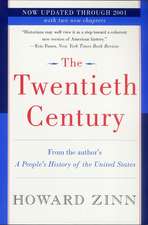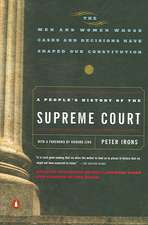New Deal Thought
Editat de Howard Zinnen Limba Engleză Paperback – 31 aug 2003
| Toate formatele și edițiile | Preț | Express |
|---|---|---|
| Paperback (1) | 93.95 lei 3-5 săpt. | |
| Hackett Publishing Company – 31 aug 2003 | 93.95 lei 3-5 săpt. | |
| Hardback (1) | 359.10 lei 3-5 săpt. | |
| Hackett Publishing Company – sep 2003 | 359.10 lei 3-5 săpt. |
Preț: 93.95 lei
Nou
Puncte Express: 141
Preț estimativ în valută:
17.98€ • 19.54$ • 15.12£
17.98€ • 19.54$ • 15.12£
Carte disponibilă
Livrare economică 31 martie-14 aprilie
Preluare comenzi: 021 569.72.76
Specificații
ISBN-13: 9780872206854
ISBN-10: 0872206858
Pagini: 472
Dimensiuni: 9 x 215 x 26 mm
Greutate: 0.57 kg
Editura: Hackett Publishing Company
Colecția Hackett Publishing Company, Inc (US)
ISBN-10: 0872206858
Pagini: 472
Dimensiuni: 9 x 215 x 26 mm
Greutate: 0.57 kg
Editura: Hackett Publishing Company
Colecția Hackett Publishing Company, Inc (US)
Recenzii
The volume is primarily a collection of documents and . . . remains a vaulable resource. Containing 420 pages of documentation, it is divided into eleven sections . . . national economic planning, monopoly power and public enterprise, social welfare, and the interest groups which the New Deal failed to mobilize.--Stuart Kidd, Journal of American Studies


























